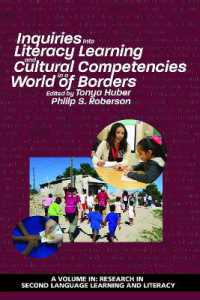- ホーム
- > 洋書
- > 英文書
- > Politics / International Relations
Full Description
Drawing on extensive qualitative research of historical and contemporary challenges, the book transcends traditional critiques of liberal peacebuilding by navigating the intersection of liberal ideals and authoritarian practices.







